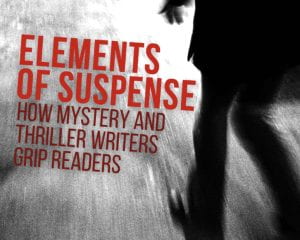A very good question is posed by this post. Masterclass helps answer it:
6 Elements of a Thriller Novel
 Whether you’re a bestselling author or a fiction writing novice, approaching the thriller genre for the first time requires an appreciation of the tropes of the genre. Here are some elements you may want to consider:
Whether you’re a bestselling author or a fiction writing novice, approaching the thriller genre for the first time requires an appreciation of the tropes of the genre. Here are some elements you may want to consider:
- A clear threat: Any successful thriller has a clear and imposing threat. What form that threat takes can determine which of the many thriller sub-genres your story falls into. There are many different types of thrillers including crime fiction thrillers, political thrillers, and psychological thrillers. If you’re writing a political thriller centered around a government conspiracy, the threat might be the FBI.
- High stakes: Good thriller writers keep readers on the edge of their seats. This requires ensuring that there are massive problems facing a protagonist along with clear, dire consequences should they not succeed at solving the problems.Piling one problem on top of the other and putting your characters in seemingly unsolvable predicaments is one way to raise the stakes.
- Twists: Most good thrillers have a storyline that is full of cliffhangers and plot twists. Subverting your audience’s expectations and throwing unpredictable roadblocks in your protagonist’s path will produce a great page-turning thriller and keep readers engaged up until the end of the book.
- Dynamic characters: The thriller genre is generally defined by complex and engaging plots, but the best thrillers don’t compromise on character development. Most thrillers have an archetypal good guy and bad guy, but as a writer, it’s your job to fully flesh out a character and brainstorm their backstory and point of view. In Silence of the Lambs, readers are introduced to a main character and antagonist who both have full character histories that inform everything they do.
- Memorable locations: Writing thrillers is exciting because of the wide variety of settings you can explore as a writer. A clear and detailed location is an essential part of writing a good thriller. Your readers should feel as if your characters are inhabiting a rich and detailed world; they should be able to picture the physical environment in which your action unfolds.
- Action: You’d be hard pressed to find a thriller that doesn’t include a fair amount of action-adventure elements. Action doesn’t necessarily have to mean violence or pyrotechnics. If your thriller is more cerebral, your action might revolve around psychological games and manipulation. The important thing is to keep your storyline moving and include dynamic action as you start writing the first page up until the end.
